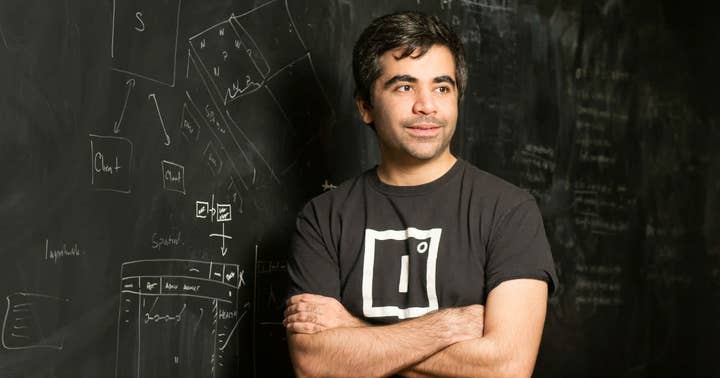Improbable leaning into the metaverse
CEO Herman Narula says company has been working on "Project Morpheus" solutions to help metaverse companies, will soon have profitable businesses of its own
Improbable wants to add a third pillar to its gaming and military simulation businesses, as the cloud tech company has made clear its own ambitions to play a role in the metaverse.
In an hour-and-a-half long press briefing yesterday, Improbable CEO Herman Narula provided an update on the company, saying, "Improbable is no longer a closed-focused-on-R&D business. We're an operating company generating profitable businesses in the near future -- including in [Improbable Multiplayer Services] as you've heard -- and working on hundreds of millions of pounds worth of pipeline in our defense and national security mission after a long period of collaborative R&D and development."
Narula explained, "While Improbable multiplayer services and SpatialOS are very helpful for video games, we needed to think a bit differently about how we were going to support the metaverse. So for the last couple of years, we've been quietly working on something we call Project Morpheus."
He described Project Morpheus as "a collection of solutions to a number of different problems in breaking [metaverse] barriers." And while he considers it distinct from the company's gaming business, he showed it off with tech tests done in an experimental mode of the company's Scavengers game he said could support 10,000 players.
Those tests included two players with super-sized avatars polling masses of smaller-sized players about a simple question, and then using attacks to play a game of "human tennis," batting crowds of smaller players between themselves.
Narula conceded that there remains skepticism about the metaverse idea attracting so much investment in the industry these days, but said one reason he was optimistic was that it "was not born in a tech company's earnings call, this presentation, or an '80s novel.
"To me it was born about 10,000 years ago, because 10,000 years ago is when the oldest monument we're aware of built by humans... was created," Narula said. "To me, it's a symbol of human beings' need and frankly fundamental machinery of living in other worlds, of living in the world of imagination.
"When I look for the metaverse, I see it in Dante, or perhaps somewhat lower brow, Harry Potter, or any other virtual world created by human beings over the last few thousand years. I think the metaverse is a return home. It's a return back to a world of useful and powerful ideas that guide us and grow us and inspire us. It's a return to the warmth of what human beings can bring to the world, and somewhat away from the consumerism and mechanism and focus on production that has dominated a lot of technological evolution of the last 100 years."
Narula also emphasized that he believes the metaverse would be built on decentralized and open platforms.
"We can see with the data of investment that while experiences that are big walled gardens have been very revenue generative, there aren't very many businesses on top of them because those businesses aren't built on strong foundations that investors can invest in," he said.
He added, "It's not so much that I think companies will suddenly become moral and ethical. I just think no one will succeed if we're not able to build open platforms. And economic pressures will grant us that."

